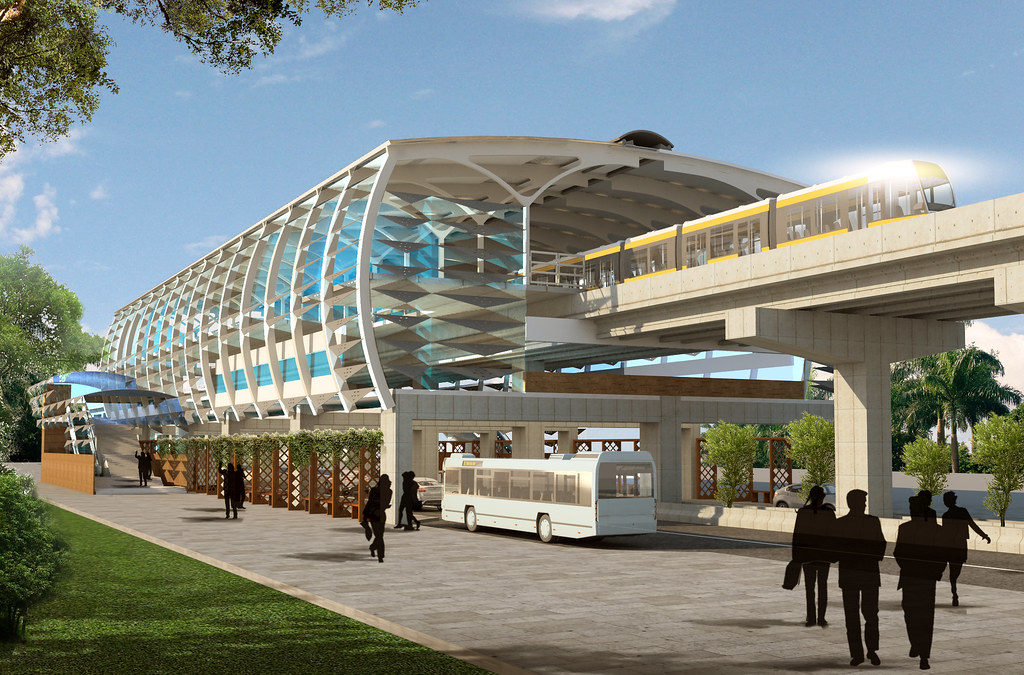Nagpur, in the state of Maharashtra, India, is seeing growing economic activity. With motorized transport dominated by two-wheelers contributing to congestion, pollution, and accidents on its roads, Maharashtra Metro Rail Corporation Limited (Maha Metro) is working hard to deliver a safe, reliable, efficient, affordable, commuter-friendly, and environmentally-sustainable rapid public transport system for the region.
When complete the Nagpur Metro project will be 41.7 kilometers in length and include 40 stations and two depots. While the current public transportation system only accounts for 10 percent of total trips, Nagpur Metro will provide first- and last-mile connectivity via feeder services that will include shuttle buses, battery-operated vehicles, pedestrian facilities, and bicycle-sharing schemes, enhancing accessibility for all classes of commuter.
The Government of India’s Ministry of Statistics and Program Implementation conducted a study that concluded that of 564 large infrastructure projects implemented in India, 42 percent were delayed, and 31 percent had no definite time of delivery. With railway projects reportedly experiencing more than 95 percent cost overruns and 118 percent time overruns, Maha Metro knew it would encounter many challenges and needed a different approach.
Opting to follow international best practices on the metro project, it took an asset-centric approach, one that would incorporate a common set of standards, workflows, and objectives from the planning stage and consider the whole lifecycle of the railway, including operations and maintenance.
The team at Maha Metro began with the definition of standards, processes, and workflows for inclusion in its digital project management platform based on Bentley’s OpenRail CDE solution.
Having developed Employers Information Requirements (EIR) that referenced the PAS 1192 suite of British Standards, and mandated their use in all supply chain contracts, Maha Metro decided to set up an owner’s support office to assist with successful implementation. With the help of Bentley Systems, Maha Metro created a BIM academy to encourage adoption of its CDE, BIM compliance, and aid onboarding of the supply chain.
At present, Maha Metro’s CDE is home to around 12,000 3D models, drawings, and project-related documents. It provides an ongoing source of trusted information for the 22 design consulting companies, 15 contractors, and a consortium of five organizations that make up its general consultants, enabling seamless collaboration across 30 disciplines on the project.
Anticipated savings because of Maha Metro’s adoption of OpenRail CDE and this pioneering approach for the Indian rail market during design and construction include:
• USD 540,000 during design review for distribution and review of information compared to manual processes.
• USD 280,000 through its adoption of automated CAD quality assurance and title block integration.
• USD 690,000 because of on-site validation of documents using QR codes.
• USD 85,000 by way of dynamic dashboard project progress reports.
Maha Metro also has its eye on operational expenditure during the capital expenditure phase and has configured its CDE to record all engineered components, systems, locations, properties, specifications, and drawings. The CDE also helped Maha Metro procure vendor data, vendor manual, vendor drawings, bills of materials, and specifications. Lastly, through the CDE, Maha Metro could install or construct assets, including test data and inspection reports, that cover all of the lifecycle stages.
When completed, this trusted source of information residing in the CDE will form the operational backbone of Nagpur Metro’s infrastructure for years to come, and it is expected to generate savings of around USD 222 million over a 25-year period.
“We are happy that we chose Bentley as the partner to realize our digital project management approach in successfully executing our project from concept to operations. The team’s innovative use of Bentley technology to manage design, construction, and handover has already been acknowledged by other large infrastructure owner-operators as an important first step to introducing a new culture for delivering rail projects in India,” said Brijesh Kumar Dixit, managing director, Maharashtra Metro Rail Corporation Limited.

